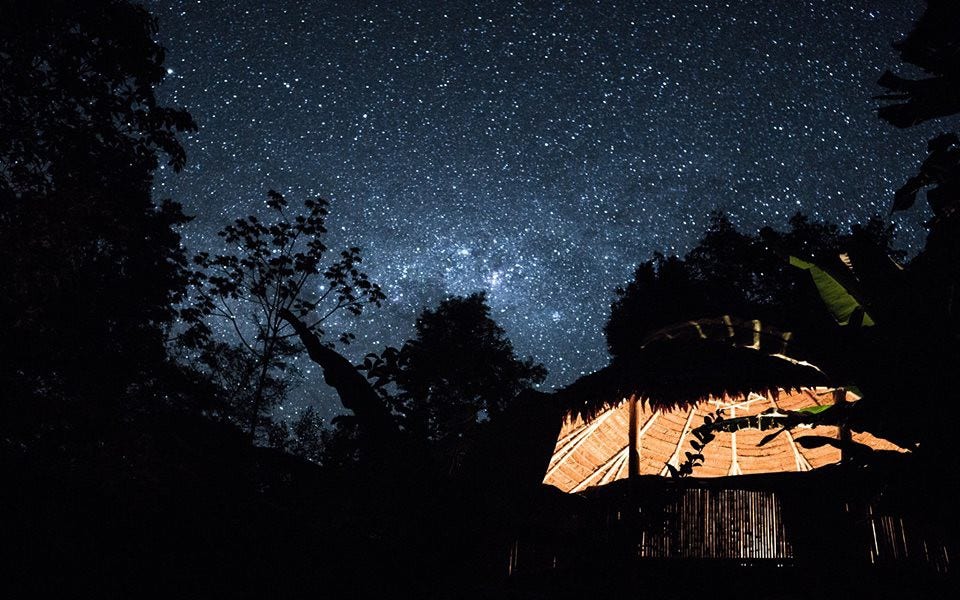In the latest issue of 1972 (available free in Barkers stores), journalist Jonathan Carson writes about tripping on ayahuasca, a hallucinogen found in the Amazon jungle, a story that culminates in an extraordinary psychic experience.
We asked Jonathan about whether he’s now a changed man.
1972: Without giving away too much about your ayahuasca trip, what’s life been like since? Have you noticed any profound changes in yourself?
JC: I was probably quite different to most Westerners who seek out ayahuasca in that I wasn't seeking any special healing and didn't really go into it wanting my life to change.
In the days afterwards, the experience did feel quite life-changing, though. It felt like I'd hit the reset button on my mind. I felt reinvigorated and, I don't know if this is the right word, but I felt grounded. I also felt physically healthier because of all the clean food we were fed. But then I came home, got a job. Routine sets in. Life is now about the same as it was pre-ayahuasca and I'm okay with that.
Ayahuasca didn’t show me my "purpose" — I'm not even sure if purpose is something you can be shown — but I'm much more content not knowing my calling in life now.
1972: How did your girlfriend’s experience compare with yours?
JC: I think she went deeper than I did. Her experience was more personal. She saw real people like friends and family and dealt with some stuff she'd been holding on to. She also spewed and cried a lot, which is common, but I didn't do any of that.
1972: Do you want to do it again?
JC: Initially, I didn't because it was such an intense, draining few days. But now I'm more open to it. It made me question things or see things from a different perspective — I'd quite like to experience that again. I'm not a drug advocate, but in a safe, controlled environment, I can see the potential benefits of ayahuasca and other so-called medicines. There are studies looking at its potential uses in psychotherapy.
1972: You wrote, “I'm not a spiritual person, I'm too inflexible for yoga, and I've only used guided meditation videos on Youtube to help me sleep.” Is that still the case or has your experience made you more receptive to those kinds of non-western practices?
JC: No, that's still the case. Yoga hurts and I haven't got the patience for meditation. I wish I did. I think I could seriously benefit from both of those things. But ayahuasca has probably made me more open to things that I had previously scoffed at. At the retreat, they talked a lot about energy and vibrations and stuff like that. I can definitely understand where those ideas come from now.
1972: How apprehensive were you about taking the drug?
JC: Extremely. We spent weeks researching retreats before we found The Garden of Peace. I remember walking from our hostel to the cafe in Tarapoto where we met everyone for the first time. I was so scared. We'd read all this crazy crap online and seen these really frightening Youtube videos of other retreats. I didn't make a will, but I messaged a couple of close friends and let them know what I was doing and roughly where it was in case something went wrong.
1972: Ayahuasca is increasingly trendy amongst a certain LA set, and has been getting referenced in movies and TV shows like Chelsea Handler. What do you make of that?
JC: I only saw the Chelsea Handler episode recently. She's cool and funny, but the whole thing made me cringe. My experience was nothing like that. I can't really talk because I'm a white guy who went to Peru, to the Amazon, to essentially experiment with something that's sacred to that culture. But I have real concerns about how it's being used or exploited in the Western world. The legitimate shamans of Peru study and drink the plants for years to learn how they work. That knowledge and wisdom should count for something.

